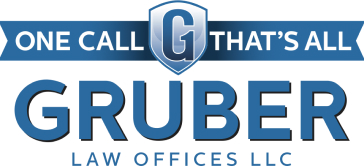
You will likely be contacted directly by an insurance company immediately following an accident (car accidents, slip and falls, or workers’ compensation alike). The insurance company will ask you for a recorded statement for insurance purposes. In these cases, please consider these 3 important facts:1 – You are generally not legally or morally obligated to give a statement to any third-party insurance company.2 – Everything you say often can be used against you during a lawsuit or claim.3 – It’s best to seek legal counsel before giving any statement, even a statement to your own insurance company.If you are ever unsure about how to proceed, ask to speak with a lawyer of your choice first. Then contact a Wisconsin personal injury lawyer immediately.
Stop! Reasons NOT to Give a Recorded Statement to the Insurance Company
 If an insurance company contacts you and asks for a recorded statement, you should think about “why” they want you to give a recorded statement. The best choice is to contact a lawyer before giving any recorded statement to discuss the matter with them first.
If an insurance company contacts you and asks for a recorded statement, you should think about “why” they want you to give a recorded statement. The best choice is to contact a lawyer before giving any recorded statement to discuss the matter with them first.![]() Most people think “well I don’t have anything to hide.” Not giving a recorded statement to an insurance company has nothing to do with lying or omitting the truth.
Most people think “well I don’t have anything to hide.” Not giving a recorded statement to an insurance company has nothing to do with lying or omitting the truth.
The important thing is to provide accurate details, without missing important information, while telling the story. It’s very difficult to approach statements correctly unless you are a personal injury attorney or deal with personal injury cases on a daily basis. It’s okay to take a step back and ask a professional attorney for help. That is your right and that is the right decision.
These are some of the most important reasons not to give a statement to anyone other than your lawyer:
– You often have absolutely NO legal obligation to talk to anyone from a third-party insurance company
– Everything you say often may be used against you.
– All statements are permanent and cannot be changed or adjusted later.
– You are not an expert and you may innocently say something that could be interpreted negatively. Remember, your statement can often be used AGAINST you.
– Your memory is not perfect, and you may say something that could hurt your case.
– Insurance companies are experts and they know how to ask questions to unsuspecting victims that could hurt their case.
If the insurance company persists, again, politely decline and let them know that they can contact your attorney if they have any questions. It is frequently in your best interest to hire an experienced personal injury attorney after being involved in an accident.
For a free legal consultation, call (414) 276-6666
What NOT Say in a Recorded Statement
 Your personal injury attorney will brief you on what to say, and what to avoid saying while giving a statement to an insurance company. In most cases, your attorney will be present during the call. Listen to your attorney’s advice and direction.
Your personal injury attorney will brief you on what to say, and what to avoid saying while giving a statement to an insurance company. In most cases, your attorney will be present during the call. Listen to your attorney’s advice and direction.
- Do not volunteer unnecessary information. That information could be twisted in a future attempt to use it against you.
- Do not provide more details than necessary. Keep your answers short and truthful.
- No guessing! Do not answer questions if you are not 100% certain you have the most accurate answer. It’s not illegal to answer “I don’t know for sure”.
- Do not say anything about your medical condition or pain levels, especially if you have not had a follow-up doctor’s appointment yet. Remember that injuries and the outcome of the crash can evolve over time.
If you do provide a recorded statement to the other party’s insurance company expect difficult questions, many of which you may not know the answer to yet given the crash likely recently occurred. Remember the insurance companies are not your friends!
Why do Insurance Companies Ask for Recorded Statements Anyway?
Recorded statements tell a story about the accident. Statements can be given to police officers, witnesses, attorneys, and insurance companies.The insurance companies will say that the primary purpose of a recorded statement is for investigative purposes. In our experience, often these calls are used to gather information to assign fault, determine coverage based on the facts of the accident, and ultimately attempt to gather information about the severity of injuries and pain.Insurance companies do their best to avoid paying out high settlements, and they will use any facts they can in a statement to push some fault back onto the victim or to minimize their injuries, and pain and suffering damages. If the insurance company can place some blame on the victim, they are often able to decrease the settlement they have to pay.After all, they do not want to pay the maximum settlement for a claim if possible.
Click to contact our personal injury lawyers today
When In Doubt Ask Your Lawyer
Of all the facts we have discussed about recorded statements, we hope that you take one single piece of advice from this forever: stop, do not answer any questions, and speak with YOUR lawyer first!You do not want to hurt your own case inadvertently. Hire an attorney that can guide you through the process from start to finish. Hire an attorney that has your best interests in mind.
Disclaimer: This post provides general information but is not legal advice and should not be construed as legal advice.
Call or text (414) 276-6666 or complete a Free Case Evaluation form















